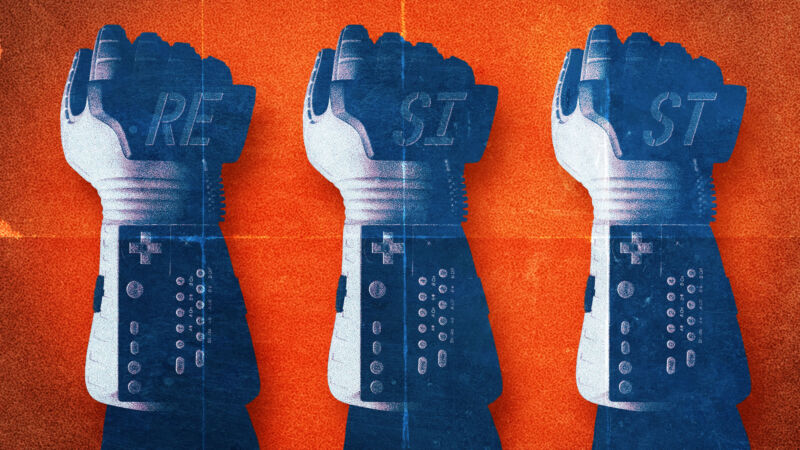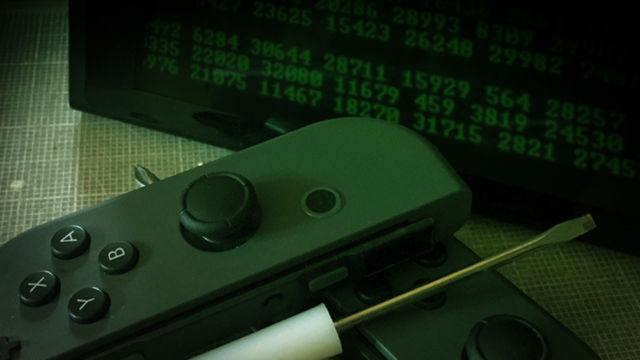
Aurich Lawson
Nintendo’s recent lawsuit against Switch emulator maker Yuzu seems written like it was designed to strike fear into the heart of the entire emulation community. But despite legal arguments that sometimes cut at the very idea of emulation itself, members of the emulation development community I talked to didn’t seem very worried about coming under a Yuzu-style legal threat from Nintendo or other console makers. Indeed, those developers told me they’ve long taken numerous precautions against that very outcome and said they feel they have good reasons to believe they can avoid Yuzu’s fate.
Protect yourself
“I can assure [you], experienced emulator developers are very aware of copyright issues,” said Lycoder, who has worked on emulators for consoles ranging from the NES to the Dreamcast. “I’ve personally always maintained strict rules about how I deal with copyrighted content in my projects, and most other people I know from the emulation scene do the same thing.”
“This lawsuit is not introducing any new element that people in the emulation community have not known of for a long time,” said Parsifal, a hobbyist developer who has written emulators for the Apple II, Space Invaders, and the CHIP-8 virtual machine. “Emulation is fine as long as you don’t infringe on copyright and trademarks.”
Other hobbyist emulator makers take more serious precautions to protect themselves legally. “I always had some fear of Nintendo’s lawyers coming after my work, which is part of the reason I still keep it private,” said StrikerX3 of his work on a Nintendo DS emulator. “I’ve only released the emulator’s binaries to a handful of people, and only two others have access to the source code besides me.”

Aurich Lawson
And others feel operating internationally protects them from the worst of the DMCA and other US copyright laws. “I have written an NES emulator and I am working on a Game Boy emulator… anyway I’m not a US citizen and Nintendo can kiss my ass,” said emulator developer ZJoyKiller, who didn’t provide his specific country of residence.
Stick to the old stuff
Some of those potential legal precautions might seem a little insufficient on further inspection—a lack of copyrighted code in the emulator wasn’t enough to protect Yuzu from Nintendo’s legal sights, after all. Still, other emulator developers pointed out a number of differences in their projects that they felt set them apart.
Chief among those differences is the fact that Yuzu emulates a Switch console that is still actively selling millions of hardware and software units every year. Most current emulator development focuses on older, discontinued consoles that the developers I talked to seemed convinced were much less liable to draw legal fire.
“There is a difference between emulating a 30-year-old system vs. a current one that’s actively making money,” Parsifal said.
In a response on the Yuzu Discord, the development team wrote, “We do not know anything other than the public filing, and we are not able to discuss the matter at this time.” Multiple developers who work on Ryujinx, another prominent Switch emulator, have yet to respond to a request for comment from Ars Technica.
“The consoles I’ve worked on [such as the Nintendo 3DS] don’t really generate much revenue anymore,” developer peach.bot said. “It would be a waste of time to sue like they did Yuzu.”
“There is a difference between emulating a 30-year-old system vs. a current one that’s actively making money.”
Emulator developer Parsifal
Systems from before the turn of the millennium also often fall into something of a different legal category, developers pointed out, if their software and/or hardware was not protected by any encryption. That means emulators for those older systems don’t have to worry about falling afoul of the strict anti-circumvention portions of the Digital Millennium Copyright Act. Developers have also reverse-engineered open source BIOS and BootROM files for some classic systems, eliminating the need to distribute that copyrighted code or even ask users to provide it.
“For most [older] emulators, users don’t have to break copyright [or encryption], at all,” Lycoder pointed out. “A lot of talented people have worked on methods to dump [copyrighted] BootROMs, firmware, etc. out of original hardware, any user that owns an original system should be able to dump these files themselves.”
Legal differences aside, emulator developers also pointed out some major philosophical differences in working on consoles that are no longer being actively marketed. “In my opinion, emulating the Switch at the moment has nothing to do with preservation,” one anonymous developer told me. “The developers might be enthusiasts and passionate but they need to be very naive to think it’ll be used for lawful preservation and use.”

